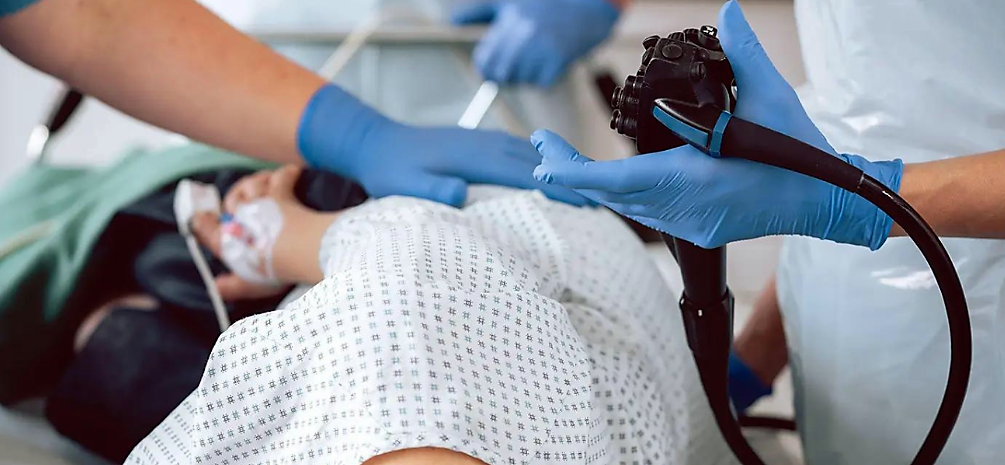Colorectal cancer, a malignancy affecting the colon or rectum, is one of the most prevalent cancers worldwide. While it may not receive as much attention as some other cancers, its impact is significant. However, there’s good news: colorectal cancer is highly preventable and, if detected early, highly treatable. By understanding its early symptoms, recognizing vulnerable populations, and making dietary modifications, individuals can significantly reduce their risk of developing this disease.

Early Symptoms to Watch For
One of the keys to combatting colorectal cancer is recognizing its early warning signs. While symptoms can vary from person to person, some common signs to watch for include:
- Changes in Bowel Habits: This could include diarrhea, constipation, or changes in stool consistency that persist for more than a few days.
- Blood in Stool: Any sign of blood in stool, whether it’s bright red or dark, warrants attention and investigation.
- Abdominal Discomfort: Persistent abdominal pain, cramps, or discomfort may signal an underlying issue, including colorectal cancer.
- Unexplained Weight Loss: Significant and unintentional weight loss without changes in diet or exercise habits should prompt further evaluation.
- Fatigue or Weakness: Feeling unusually tired or weak, especially if it persists, could be a symptom of colorectal cancer.
It’s important to note that various conditions can cause these symptoms, but if they persist or worsen, it’s crucial to consult a healthcare professional for further evaluation.
Vulnerable Populations
While colorectal cancer can affect anyone, certain factors can increase an individual’s risk. Some vulnerable populations include:
- Age: The risk of colorectal cancer increases with age, with the majority of cases occurring in individuals over 50. However, cases in younger individuals have been rising in recent years.
- Family History: Individuals with a family history of colorectal cancer or certain genetic syndromes, such as Lynch syndrome or familial adenomatous polyposis, are at higher risk.
- Personal History: Individuals who have previously had colorectal cancer or certain types of polyps are at increased risk of developing the disease again.
- Inflammatory Bowel Disease: Conditions such as Crohn’s disease or ulcerative colitis can increase the risk of colorectal cancer over time.
- Lifestyle Factors: Factors such as smoking, excessive alcohol consumption, obesity, and a diet high in red and processed meats can also increase the risk of colorectal cancer.
Identifying these risk factors can help individuals and healthcare providers implement appropriate screening and prevention strategies.
Dietary Modifications for Prevention
Diet plays a crucial role in colorectal cancer prevention. Making simple modifications to your diet can significantly reduce your risk of developing this disease. Some dietary recommendations include:
- Increase Fiber Intake: Consuming a diet rich in fruits, vegetables, and whole grains can provide essential fiber, which helps promote regular bowel movements and may lower the risk of colorectal cancer.
- Limit Red and Processed Meats: Red meats such as beef, pork, and lamb, as well as processed meats like bacon, sausage, and deli meats, should be consumed in moderation.
- Choose Lean Protein Sources: Opt for lean protein sources such as poultry, fish, beans, and legumes to reduce the intake of saturated fats associated with colorectal cancer risk.
- Stay Hydrated: Adequate hydration is essential for overall health and can help maintain healthy bowel function.
- Limit Alcohol Consumption: Excessive alcohol consumption has been linked to an increased risk of colorectal cancer. Limiting alcohol intake to moderate levels is recommended.
By adopting these dietary modifications and maintaining a healthy lifestyle, individuals can lower their risk of developing colorectal cancer and improve their overall health.
In conclusion, colorectal cancer is a significant public health concern, but it’s also a highly preventable and treatable disease. By understanding its early symptoms, recognizing vulnerable populations, and making dietary modifications, individuals can take proactive steps to reduce their risk of developing this disease. Remember, early detection and prevention are key in the fight against colorectal cancer.
References:
- Siegel RL, Miller KD, Goding Sauer A, et al. Colorectal cancer statistics, 2020. CA Cancer J Clin. 2020;70(3):145-164.
- Fearon ER, Vogelstein B. A genetic model for colorectal tumorigenesis. Cell. 1990;61(5):759-767.
- World Cancer Research Fund/American Institute for Cancer Research. Diet, nutrition, physical activity and colorectal cancer. Continuous Update Project Expert Report 2018.
- Chan DS, Lau R, Aune D, et al. Red and processed meat and colorectal cancer incidence: meta-analysis of prospective studies. PLoS One. 2011;6(6):e20456.
- Liu L, Zhuang W, Wang R, et al. Alcohol intake and risk of colorectal cancer: evidence from the China Kadoorie Biobank. Sci Rep. 2019;9(1):8541.
